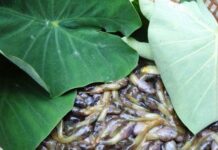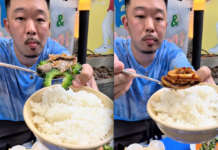As the big exam approaches, many parents and students alike place great importance on diet and rituals to bring good luck. So, what should you eat and do to ensure a smooth journey? Let’s find out!
1 What to Do for Good Luck Before an Exam?
The ancients said, “There is worship, there is trial, there is abstinence, there is health.” Read on to discover what you should and shouldn’t do for a smooth sailing exam!
What to Eat for Good Luck Before an Exam?
Red-colored dishes, such as sticky rice with gac
Our ancestors believed that red is the color of luck and success. Therefore, many families consider sticky rice with gac as a must-have dish to wish for good luck and bring fortune to the students before their important exams.
All kinds of beans, except black beans
This is quite evident from the naming convention. The word “bean” in Vietnamese (“đậu”) is a homonym for the verb “to pass” (“đậu”) in expressions like “to pass the graduation exam.” So, these humble yet nutritious dishes symbolize academic success.
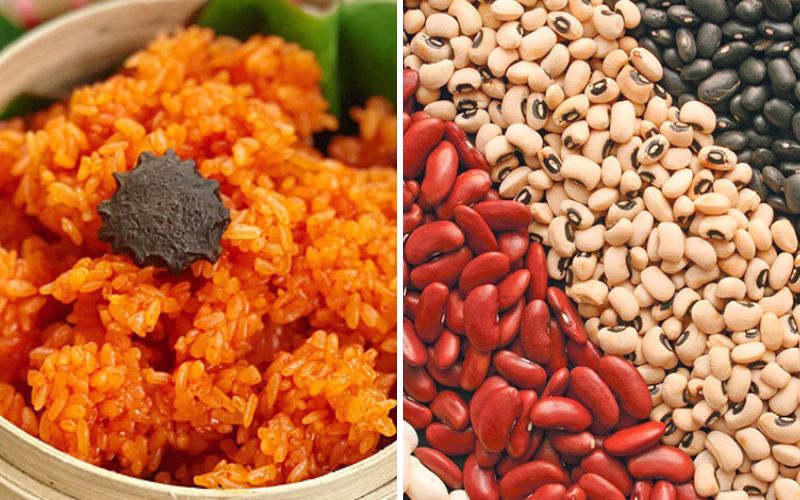 Sticky rice with gac and nuts for good luck
Sticky rice with gac and nuts for good luck
Papaya is believed to bring good fortune
Papaya is rich in vitamins and nutrients beneficial for health, so parents often choose it to help students achieve their desired scores in the upcoming exams.
Tofu with tomato sauce
Another play on words with “đậu” (to pass), tofu with tomato sauce is an upgraded version. It’s a perfect combination of the white color of tofu and the lucky red of tomatoes, promising to boost students’ confidence before the exam.
 Papaya and tofu with tomato sauce for good luck
Papaya and tofu with tomato sauce for good luck
Eat an apple before the exam
Eating an apple is believed to bring good luck, stemming from Hong Kong’s school culture. In Cantonese, apple is pronounced as “ping guo,” which sounds similar to “peace” (“ping an” in Vietnamese). Thus, eating an apple before an exam is considered a lucky charm for students.
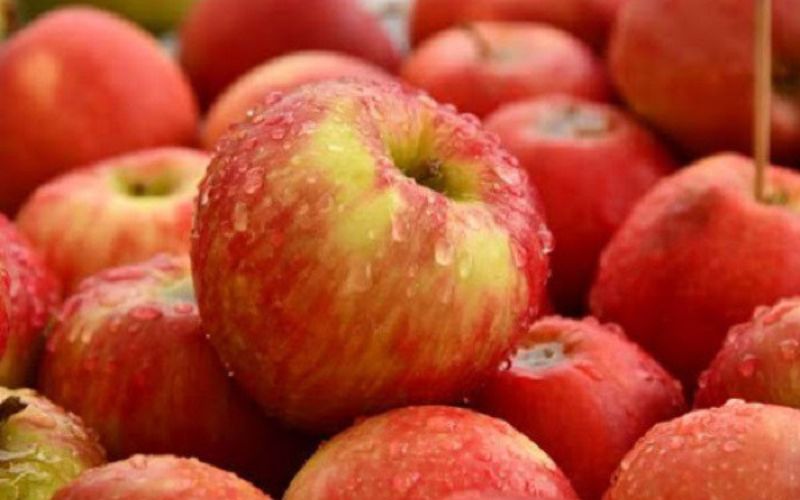 Apple for a smooth journey
Apple for a smooth journey
Reference:
Rituals for Good Luck Before an Exam
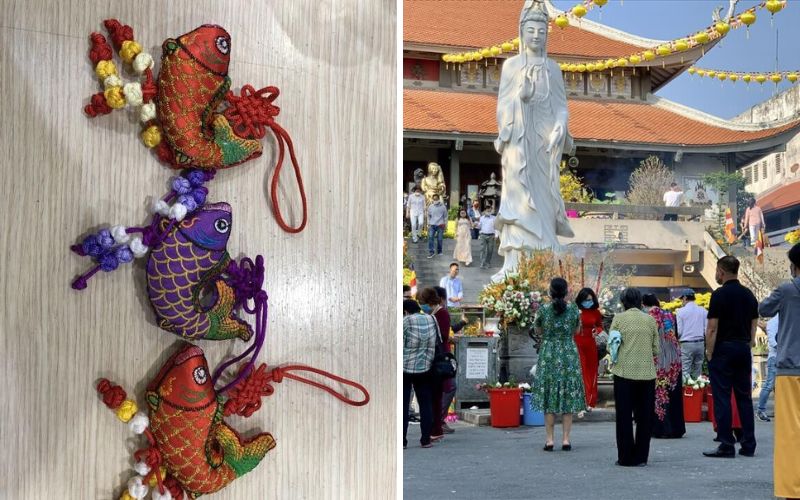 Carry lucky charms
Carry lucky charms
Small accessories like four-leaf clovers, keys, or carp keychains symbolize good luck and success. Moreover, they are allowed in the exam room, so students can rest assured.
Pray for luck
The concept of praying for luck is not limited to Lunar New Year celebrations. Before exams, many parents and students visit temples and pagodas to offer incense and pray for desired results.
Lucky carp and temple prayers
Offer incense to ancestors
On the morning of the exam, offering incense to your ancestors shows respect and seeks their blessings. If you encounter a challenging question during the test, you can call on your ancestors for help!
Step out with your right foot first
According to ancient beliefs, stepping out with the right foot first brings ease and smoothness. For students, starting their day with the right foot first is believed to attract good luck, leading to academic success and excellent achievements.
 Offering incense and stepping out with the right foot first
Offering incense and stepping out with the right foot first
Reference:
2 What to Avoid Doing Before an Exam to Ward Off Bad Luck?
What Not to Eat Before an Exam?
Eggs
Eggs are round and resemble the number zero, which is considered unlucky in exams. Although eggs are nutritious, they are unfortunately excluded from the recommended diet before exams.
Squash and gourds
It is believed that consuming squash or gourds before an exam, especially in creative subjects like literature, will lead to a “block” in ideas during the test.
 Eggs and squash are considered unlucky
Eggs and squash are considered unlucky
Peanuts ()
Similar to the belief about squash, eating peanuts is thought to make students “go off-topic” and negatively impact their performance in this crucial exam. So, students, beware of eating “peanuts”!
Bananas are rich in vitamins and beneficial to health. However, the banana peel is slippery, and the phrase “to slip on a banana peel” is commonly used. Therefore, eating bananas before an exam is associated with “slipping up” and not passing.
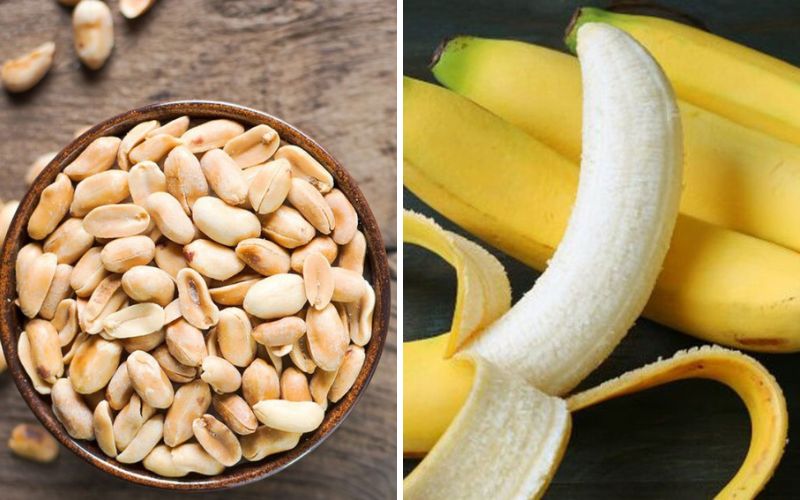 Peanuts and bananas are not considered lucky
Peanuts and bananas are not considered lucky
The phrase “black as ink” is commonly used. To avoid bad luck, parents often choose not to serve dishes with squid or octopus before the exam to prevent any “dark” omens.
 Black as ink
Black as ink
What Not to Do Before an Exam?
Avoid the number 13
In folk beliefs, the number 13 is considered unlucky and often associated with bad luck. Therefore, students should be cautious and try to avoid any connection with the number 13 before their exams.
Don’t cut your hair
The book “Huangdi Neijing” states: “A part of human memory is stored in the hair.” Cutting your hair before an exam may result in a loss of some memorized knowledge.
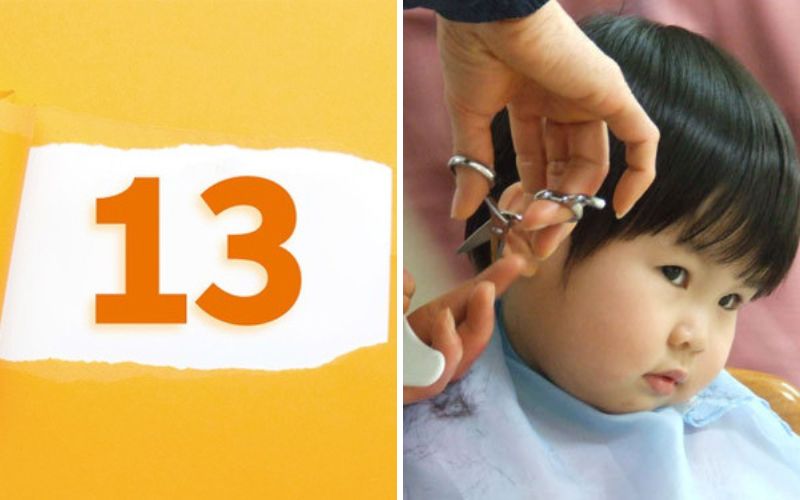 Avoid the number 13 and cutting hair
Avoid the number 13 and cutting hair
Don’t cut your fingernails or toenails
It is believed that cutting your nails before an exam may result in losing some of your luck. It could also be due to personal habits and preferences. Usually, long nails are comfortable, and suddenly having short nails before the exam may affect your psychological state.
Don’t
Many people believe that students should not wash their hair before an exam, as it may wash away their knowledge.
Check out for extra motivation and confidence for the exams!
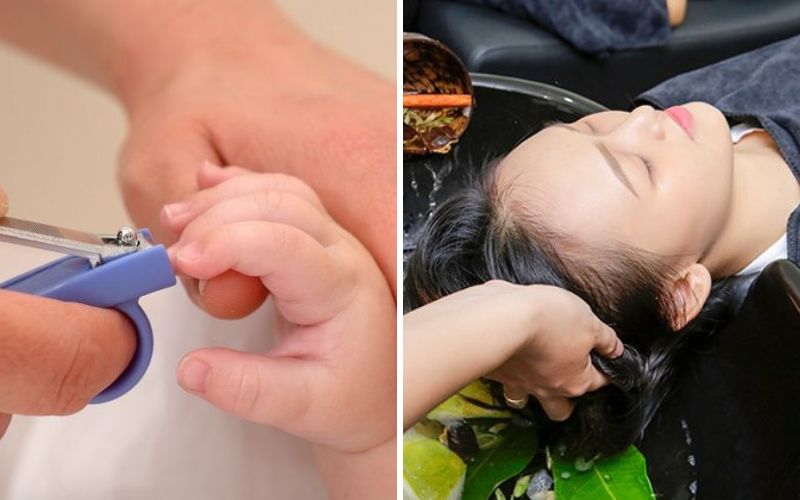 Avoid cutting nails and washing hair
Avoid cutting nails and washing hair
For more interesting content, visit on our website!
The above suggestions on what to do and what not to do before an exam are based on traditional beliefs and are for reference only. Hopefully, by following some of these tips, students will feel more confident and achieve their best results.



























